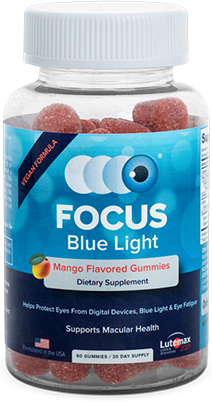You’ve probably been reminded to get your eyes checked every two years, but have you ever asked yourself why this is so important? Most of the time, people decide to visit an eye doctor when they notice a difference in their vision, and sometimes, it may be too late. Routine eye exams help doctors identify any existing eye problems, and additionally, your eye doctor can identify any signs of eye problems that develop without any obvious symptoms and can affect not only your vision but your overall health. Read more to learn the importance of getting your eyes checked on a regular basis.
Avoid Vision Loss and Keep Eyes Healthy
It may seem obvious, but eye exams are key to keeping your eyes healthy and avoiding complete vision loss. As we age our eyes start to weaken, our vision begins to change in subtle ways, and the risk of developing serious eye diseases increases. This is why it is so important to get your eyes checked regularly. Additionally, our eyes are exposed to elements that can affect our vision such as pollution, UV rays, and blue light on a daily basis. During your routine eye exam, your doctor can suggest specific ways to help you protect your eyes and keep them healthy.
Detect Other Diseases
There are several diseases that can lead to complete vision loss without obvious symptoms - many of which can only be detected by an eye doctor. These diseases include but are not limited to the following:
Glaucoma - According to the Glaucoma Research Foundation, glaucoma can lead to blindness if it is not treated appropriately. Unfortunately, glaucoma is not curable, but when detected early and with the right treatment, it is possible to stop further loss of vision.
Age-Related Macular Degeneration (AMD) - AMD is the leading cause of vision loss in people over the age of 60. AMD is an eye disease that causes the breakdown of the macula, which is the part of the eye that is responsible for central vision. Many people don’t know they have AMD until they notice a change in their vision and see their eye doctor. This is why regular eye exams by an eye doctor can help to detect the early stages of macular degeneration before you are aware of them. Although there is no cure for dry macular degeneration, there are supplements, such as Focus Select®, that help slow down the progression of AMD in people with moderate levels of disease by 25%.
Diabetes - Did you know that 34.2 million Americans have diabetes? Sometimes, people don’t realize they have diabetes because they are not showing any symptoms. This is when regular eye exams come into play. During an eye exam, the doctor takes a close look at the blood vessels in the eye. If they notice any damage in the blood vessels of the retina, they might diagnose diabetic retinopathy. If this is the case, the patient should speak with their primary doctor right away.
Glaucoma, AMD, and diabetes are just 3 of the diseases that can be detected by an eye exam. Other diseases are high blood pressure, cancer, thyroid disease, lupus, and more. Remember, early detection is key to prevention.
Improve Your Quality of Life
Nowadays, most of our daily tasks involve screens. Whether it’s smartphones, television, tablets, or computers, every day we interact with at least one of these. As a matter of fact, the average American spends around 17 hours of their day looking at digital devices. It is important to understand that extended periods of time spent in front of digital devices have a negative effect on the eyes. The blue light emitted from digital devices can lead to dry eyes and computer vision syndrome, which in turn cause dry and irritated eyes. If you believe you are spending too much time in front of a computer, phone or TV, make sure to communicate that to your doctor during your eye exam. They may suggest blue light blocking glasses or supplements that contain ingredients that help protect your eyes, such as Focus Blue Light.

Focus Blue Light formula promotes healthy eye function by increasing macular pigment in the eye, and improves contrast sensitivity and glare to help the eyes quickly recover after use. It contains 20 mg of lutein and 4 mg of zeaxanthin, which are carotenoids that help protect vision.
Don’t wait until it’s too late, schedule your eye exam today if you haven’t done so already. If you need help finding an eye doctor in your area, check out our Find a Doctor Tool! Even if you believe you have good eye health, you can avoid vision loss, detect other diseases, and improve your quality of life. Eye exams are as important as your annual checkup with your primary doctor!